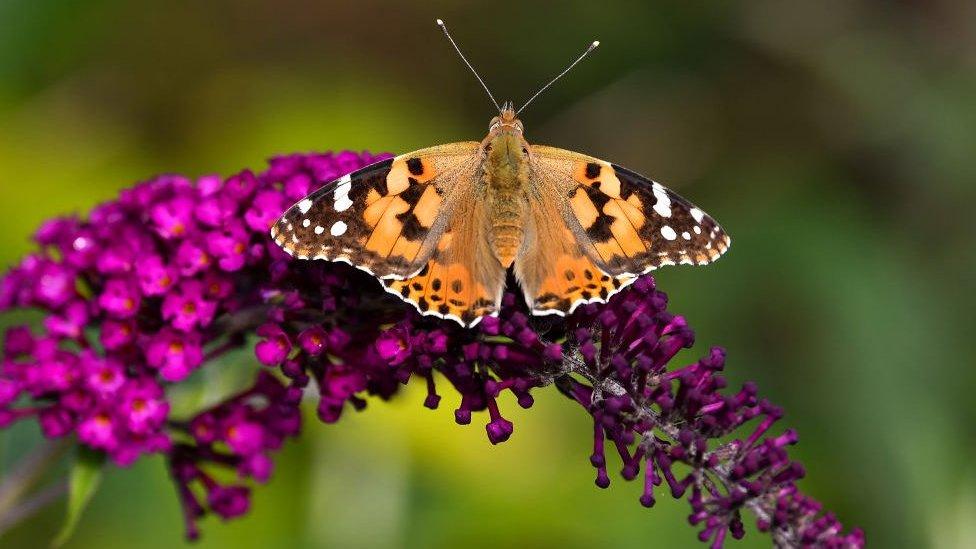Butterflies: Decrease in population for majority of Britain's butterfly species
- Published
- comments

Most butterflies in the UK have seen their populations fall
The majority of Britain's butterfly species have seen a drop in numbers over the past fifty years, according to experts.
The Butterfly Conservation wildlife charity has released a new report, which found that butterflies which depend on flower-rich habitats have declined by nearly 30%.
Those insects have also disappeared from two-thirds of the area they once occupied.
The data also showed that some southern species are spreading north with the warming climate.
Why are butterfly numbers decreasing?
The Comma butterfly has seen its population increase in the UK
Using data collected by volunteers across the country, the scientists measured butterfly abundance and distribution levels of different species.
They found that the butterflies which suffered the biggest decrease in numbers were those that relied on flower-rich grassland, heathland and woodland clearings - with a decline of 27%.
Other species that are able to live in urban or farmed environments have been more resilient, but as a group their numbers had still fallen by 17%.
The charity also discovered that most butterfly species have been affected by factors including climate change, farming, urban development and pollution.
The Butterfly Conservation say that half the UK's remaining butterfly species are threatened or near threatened and has placed them on a Red List of vulnerable species.
A long-term conservation project has seen the Wood White butterfly population increase in the West Midlands
Dr Richard Fox, lead author of the report, said: "We know far more about UK butterflies than any other group of insects anywhere on the planet.
"And so they're telling us about the fate not only of many thousands of other species in the UK but also about the general health of our environment," he explained.
Experts say that that there is hope for the endangered species.
There have been various conservation success stories, including the reintroduction of the Chequered Skipper butterfly to England, while peatland restoration on lowland bogs in Scotland is helping the Large Heath butterfly.
Dr Fox added: "We have proved that conservation organisations, with the help of the public and landowners and the Government, can turn things around."
- Published31 January 2023
- Published1 February 2023
- Published1 February 2023
